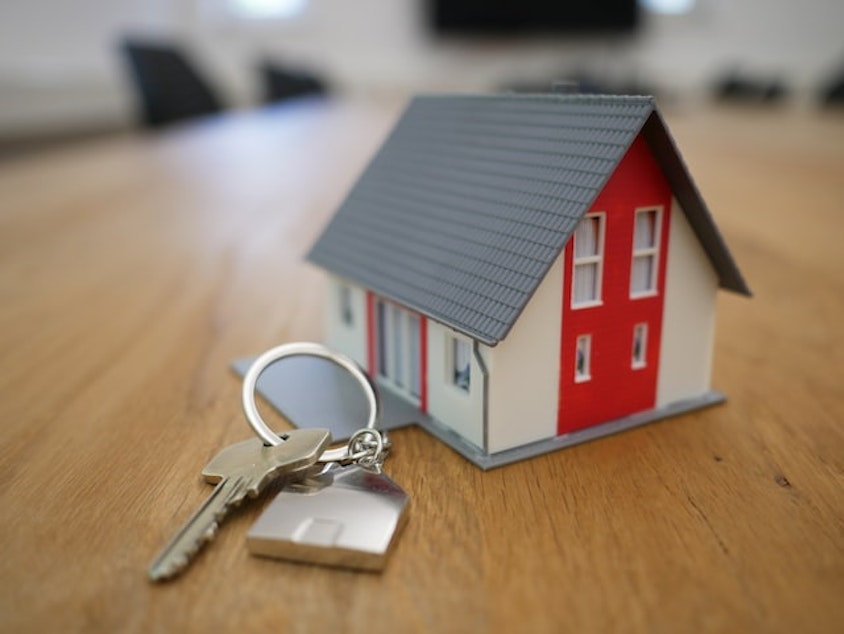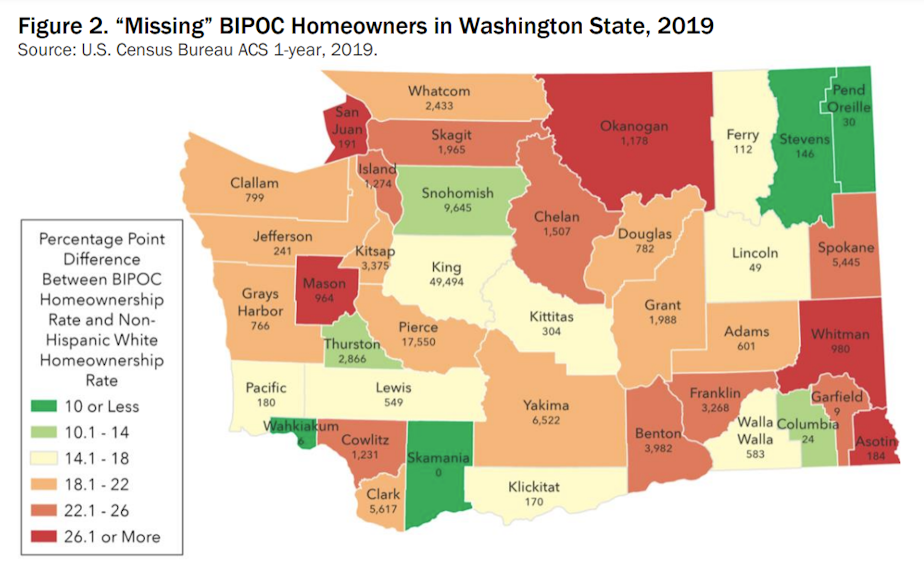BIPOC homeownership would have to increase by 140K in Washington to reach parity, report says

A new report says the home ownership gap in Washington state is so large that Black, Indigenous and people of color would have to purchase more than 140,000 houses to achieve parity with white homeowners.
Breaking it down by county: 49,494 homes would have to be purchased in King County, 9,645 homes in Snohomish County, and 17,550 in Pierce County.
“This report is key to starting the process of removing barriers and improving access to homeownership. And, there is more work to be done," said Dr. Karen A. Johnson, director of the Washington state Office of Equity. "Now is the time for action. Every individual who plays a role in the homeownership process has work to do to achieve equity and justice for all.”
Among the findings that the Homeownership Disparities Work Group found over its 10-month lifespan is that the homeownership gap between Black and white households is worse today than it was in the 60s.

The report states:
Sponsored
"According to an analysis of census American Community Survey (ACS) data, the BIPOC homeownership rate in Washington is 49%, slightly higher than the national BIPOC homeownership rate, but 19 percentage points below that of non-Hispanic white households in Washington (with a homeownership rate of 68%, as of 2019). And within the BIPOC community, the homeownership rate also varies; the homeownership rate for Black and Hispanic/Latino Washington households is only 31% and 45%, respectively. Asian American and Pacific Islander homeownership rates are highest among BIPOC households at 60%."
Now, the Homeownership Disparities Work Group is making 27 recommendations to the state lawmakers for how they can remove barriers to all residents wishing to buy a home.
Among the list of 27 recommendations are 12 "ready and actionable recommendations," which include:
- Increase biennial state funding for affordable homeownership programs, including land acquisition and predevelopment costs.
- Fund a technical assistance/capacity-building program to build the nonprofit organizational infrastructure to develop, finance, facilitate, build, and steward all types of affordable homeownership projects.
- Provide technical planning assistance and resources to municipal governments to increase affordable homeownership units.
- Revise Housing Trust Fund and Housing Finance Commission programs to reduce the administrative burdens on applicants.
- Increase the amount of funding available for direct assistance to homebuyers and homeowners.
- Make current programs more flexible by increasing the per-household limits on existing assistance awards.
- Target homeownership assistance to the BIPOC community via historical ties to culturally specific areas.
- Provide incentives to home sellers to accept offers from purchasers using down payment assistance programs.
- Expand debt mediation and credit repair programs.
- Ensure that awareness of homeownership programs is part of licensing and education requirements for people in the real estate industry.
- Fund culturally specific organizations for outreach to increase the visibility of and access to homeownership assistance programs for BIPOC communities.
- Explore policies to improve connections with BIPOC communities to ensure that interest in homeownership is understood by funders.
The Homeownership Disparities Work Group was created by the state Legislature in 2021 to address decades of policies that widened the homeownership gap (red lining, deed restrictions, mortgage subsidies). The work group met for 10 months to develop its recommendations.
Sponsored
“There is nothing more foundational than a home, and we have to ensure everyone has access to a critical resource we all depend on,” Department of Commerce Director Lisa Brown said. “The history of systemic, discriminatory policies and practices in housing has had a devastating impact on our most marginalized communities. The recommendations in this report can be a compass to guide our work to eliminate barriers and increase access to affordable housing for BIPOC communities.”


